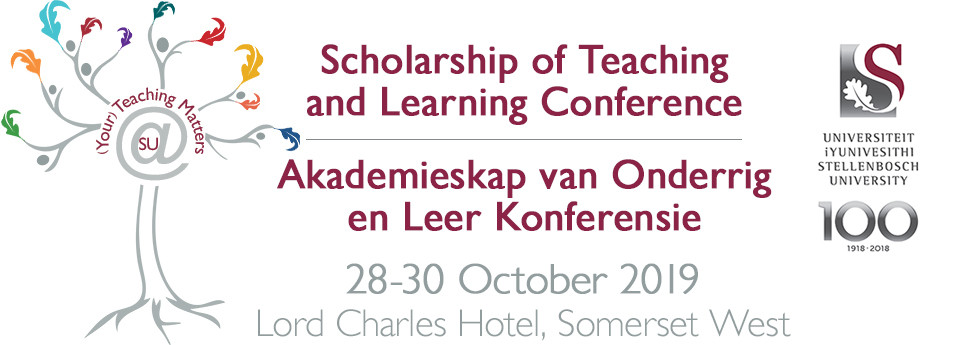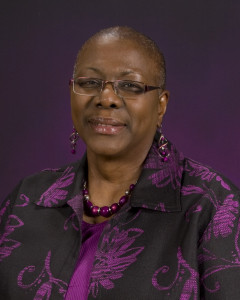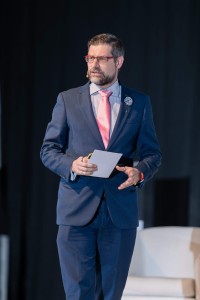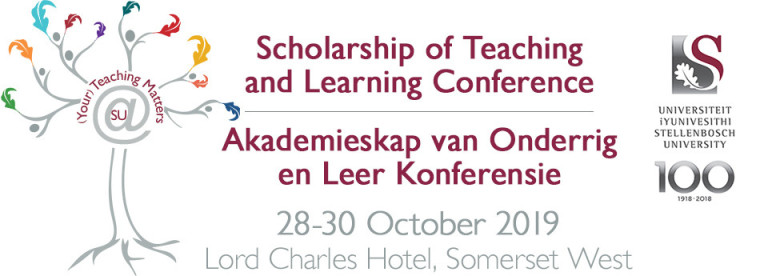Biography for Dr Joy Mighty
Click here for Dr Mighty’s Keynote Video
Dr Joy Mighty is a Senior University Administrator and Professor at Carleton University in Ottawa, Canada. From 2012 to 2018, Dr Mighty served as the Associate Vice-President (Teaching and Learning) and held a joint appointment as a Full Professor in the Sprott School of Business and the Pauline Jewett Institute of Women’s and Gender Studies in the Faculty of Arts and Social Sciences. Currently on one year’s Administrative Leave, upon her return to Carleton in July 2019, Dr Mighty will assume the position of Senior Scholar for Innovation in Teaching and Learning.
Dr Mighty previously served as the Director of the Centre for Teaching and Learning at Queen’s University and as a Full Professor in the Queen’s School of Business. Prior to her work at Queen’s, she was the coordinator of the Teaching and Learning Centre and a professor in the Faculty of Business Administration at the University of New Brunswick.
Born in Georgetown Guyana, Dr Mighty has an eclectic academic background and a wealth of experience as an administrator, teacher, educational developer, researcher and consultant. She obtained her B.A. (English Honours), Post-Graduate Diploma in Education, M.A. in Education and Post-Graduate Diploma in Management Studies from the University of the West Indies in Jamaica. She earned her MBA from Howard University in Washington, D.C., and her Ph.D. in Organizational Behaviour from the Schulich School of Business at York University in Toronto. She is also a Past-President of the Society for Teaching and Learning in Higher Education, was the inaugural chair of the Educational Developers Caucus, and served as Canada’s representative on the Council of the International Consortium for Educational Development.
Dr Mighty has received awards for excellence in teaching, research, and extraordinary service and professional leadership. Her special interests are organizational development and change, as well as equity, diversity and the scholarship of teaching and learning. She has provided consulting services to private, public and not-for-profit organizations in Canada, the Caribbean, China, England, Germany, Japan, Saudi Arabia, South Africa, and the USA. A frequently sought keynote speaker at regional, national, and international conferences, she has also published in various conference proceedings, journals and books, and is the co-editor of the highly acclaimed 2010 publication Taking Stock: Research on Teaching and Learning in Higher Education.
Abstract for Keynote Address
By Dr Joy Mighty
Conference theme: “(Your) Teaching Matters”
Why teach? Why do YOU teach? Would it matter if you did not teach? How you answer these questions may provide important clues to how you teach, how you interact with your students, and your perceptions of the role that teaching plays in both your professional identity and the dominant teaching philosophy of your institution.
This presentation will encourage all of us to reflect on our motivations for teaching. It will invite us to explore how the ideologies underlying these motivations and our social identities may impact our teaching. Moreover, when institutional priorities intersect with our personal and professional motivations for teaching, the result may yield perspectives and teaching behaviours along a continuum ranging from utter indifference to an all-consuming passion for teaching. We will reflect on where we lie along this “teaching matters continuum” and discuss ways of moving the needle towards ever more engaging, socially impactful behaviours that indicate that our teaching matters. Such behaviours may include providing outcomes-based curricula, using high-impact evidence-based, learning-centered pedagogical practices, creating safe, enriching and inclusive learning environments, and engaging in the scholarship of teaching and learning. But it takes more than the efforts of individual teachers working alone to make teaching matter. Ultimately, it also requires structural, institutional level changes, not the least of which is leadership at the senior administrative levels to ensure integration and coherence among the University’s system of teaching and learning activities. Does (your) teaching matter at SU?
Biography for Prof Geo Quinot
Click here for Prof Quinot’s keynote video
Geo Quinot is Professor of Law in the Department of Public Law at Stellenbosch University (SU); Founding Director of the African Procurement Law Unit (APLU) and Co-Director of the Socio- Economic Rights and Administrative Justice Research Project (SERAJ). He is also admitted as an Advocate of the High Court of South Africa. Quinot teaches administrative law, constitutional law and public procurement law in the SU Law Faculty and the School for Public Leadership. He also regularly instructs public administrators in both administrative law and public procurement regulation.
Quinot was a teaching fellow at SU between 2013 and 2015 and subsequently formed part of the first group of scholars nationally to complete the National Teaching Advancement at University Fellowship programme in 2016. He was awarded the CHE/HELTASA National Excellence in Teaching and Learning Award in 2012 and the SU Chancellor’s Award for Lifetime Achievement in Teaching and Learning in 2016. In 2016 he completed a two-year fellowship project funded under the Newton Fund Advanced Fellowship Scheme, administered by the British Academy, on capacity building in public procurement law in Southern Africa.
Quinot’s research focuses on general administrative law, including a particular focus on the regulation of state commercial activity such as public procurement and legal education. He has published 31 peer-reviewed articles (21 as single author) and 16 chapters in book publications. He is the author, co-author and/or editor of six book publications. Quinot is a past editor-in-chief of the journal, Stellenbosch Law Review and the founding editor-in-chief of the new open-access journals, African Public Procurement Law Journal and Ukumela: Journal of legal reasoning, writing and education. The latter two journals are the first of their kind on the African continent. In 2013 and 2015 Quinot was recognised as one of the top 50 most productive researchers at SU.
Quinot is often called upon to assist in national policy and regulatory development in his fields of expertise. In 2012/3 he served on a ministerial task team in the South African National Department of Health, focusing on the reform of health procurement systems in South Africa. In 2014 he completed an extensive research project for the South African National Treasury on the establishment of the Office of the Chief Procurement Officer and subsequently assisted that Office on reform of South African public procurement law. Between 2014 and 2016 he assisted the South African Council on Higher Education in the formulation of a qualification standard for the LLB degree, against which all programmes leading to the LLB in South Africa can be accredited. He also advised the South African Law Deans’ Association (SALDA) in 2014 on an appropriate pedagogy for teaching law in South Africa under the 1996 South African Constitution.
As an advocate, Quinot advises on matters relating to administrative law and especially public procurement law to both public buyers (organs of state) and suppliers to the state. Quinot obtained the degrees BA(Law) and LLB, both cum laude, at SU (the latter for which he received the Chancellor’s medal); LLM at the University of Virginia School of Law in the USA as a Fulbright scholar; MA (Higher Education Studies) cum laude at the University of the Free State and LLD (doctorate in law) at SU. He is currently completing an MPA degree at the University of Birmingham in the UK.
Abstract for Keynote Address
By Prof Geo Quinot
Conference theme: “(Your) Teaching Matters”
This paper will focus on a collaborate paradigm of teaching and learning. It asks what the relationship is between the “YOU” and the “OUR” when it is said: “Your teaching matters”. The paper aims to link the individual teaching practice with a community of practice via the African value of Ubuntu, asking whether such a collaborative paradigm is perhaps more appropriate for a university with the vision of becoming “Africa’s leading research intensive university.” At a theoretical level, the paper explores such a collaborative paradigm of teaching based on African values with existing teaching theories such as social constructivism, cooperative versus collaborative learning and an ethics and pedagogy of care. The paper asks whether such a collaborative paradigm is perhaps more appropriate in our context than a highly individualistic one that is typical of a traditional liberal conception of the university. The paper also explores the roles of identities within a collaborative paradigm of teaching.
- These themes are explored across a number of dimensions of teaching:
Looking at outcomes, the paper asks whether outcomes must necessarily be formulated in individual terms, that is with a focus on what individual competencies are developed in a module, or whether it is possible to formulate outcomes with a more collaborate slant. - In curriculum, the paper asks whether studying a distinct field within a distinct module within a distinct programme by an individual student can necessarily yield collaborate learning outcomes.
- In pedagogy, the paper asks whether the paradigm in designing teaching activities is focused on the individual student and engaging and developing that individual student’s competencies. What are our intentions behind teaching activities – simply to develop some competence or knowledge, or also to foster collaboration, a sense of community, a sense of participation, worth within the community, or, perhaps, simply a positive experience of engagement?
- Finally, perhaps most challenging, the paper asks whether in assessment there is a more collaborative way or whether we are necessarily limited to assessing the individual student and his or her individual efforts and development.



